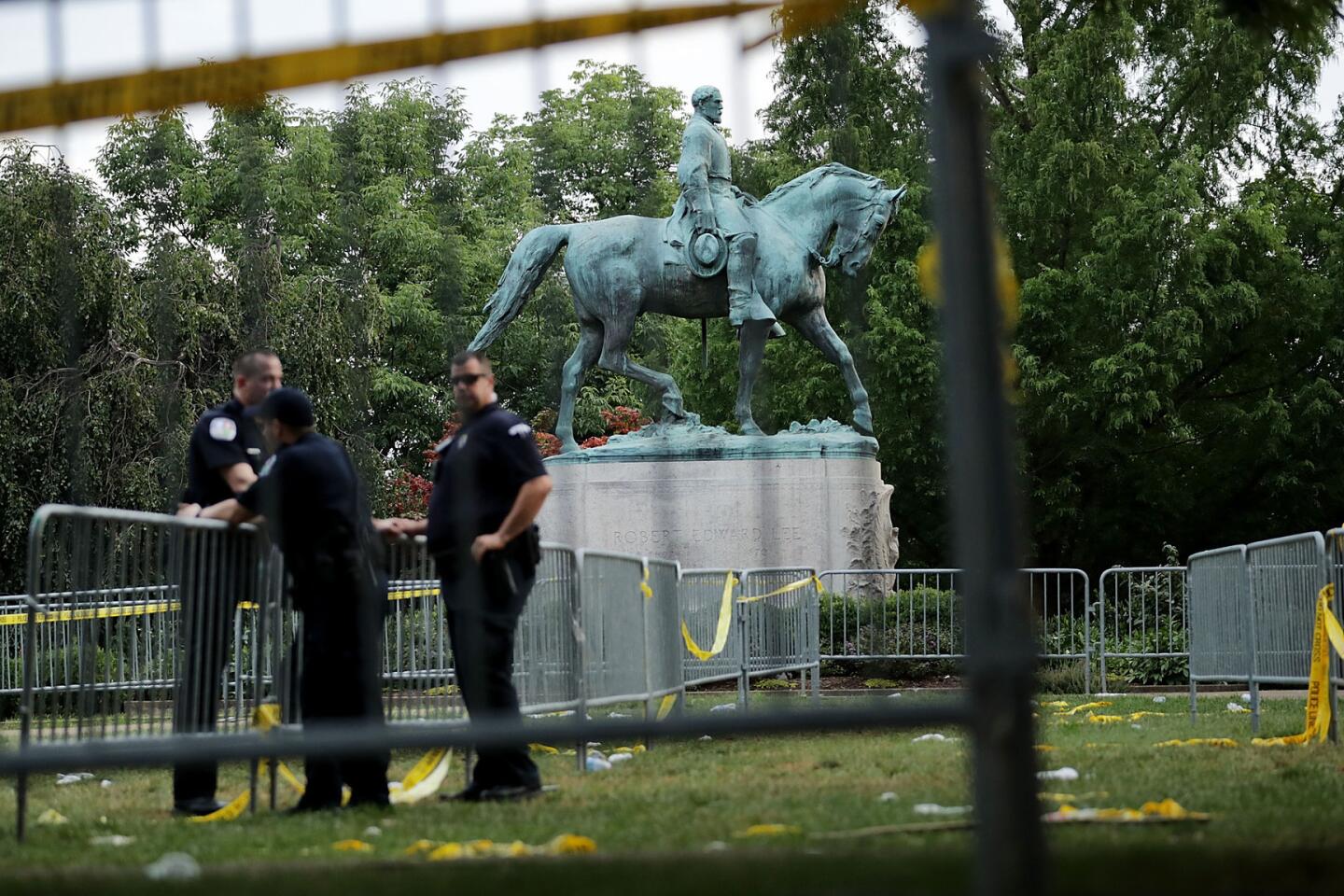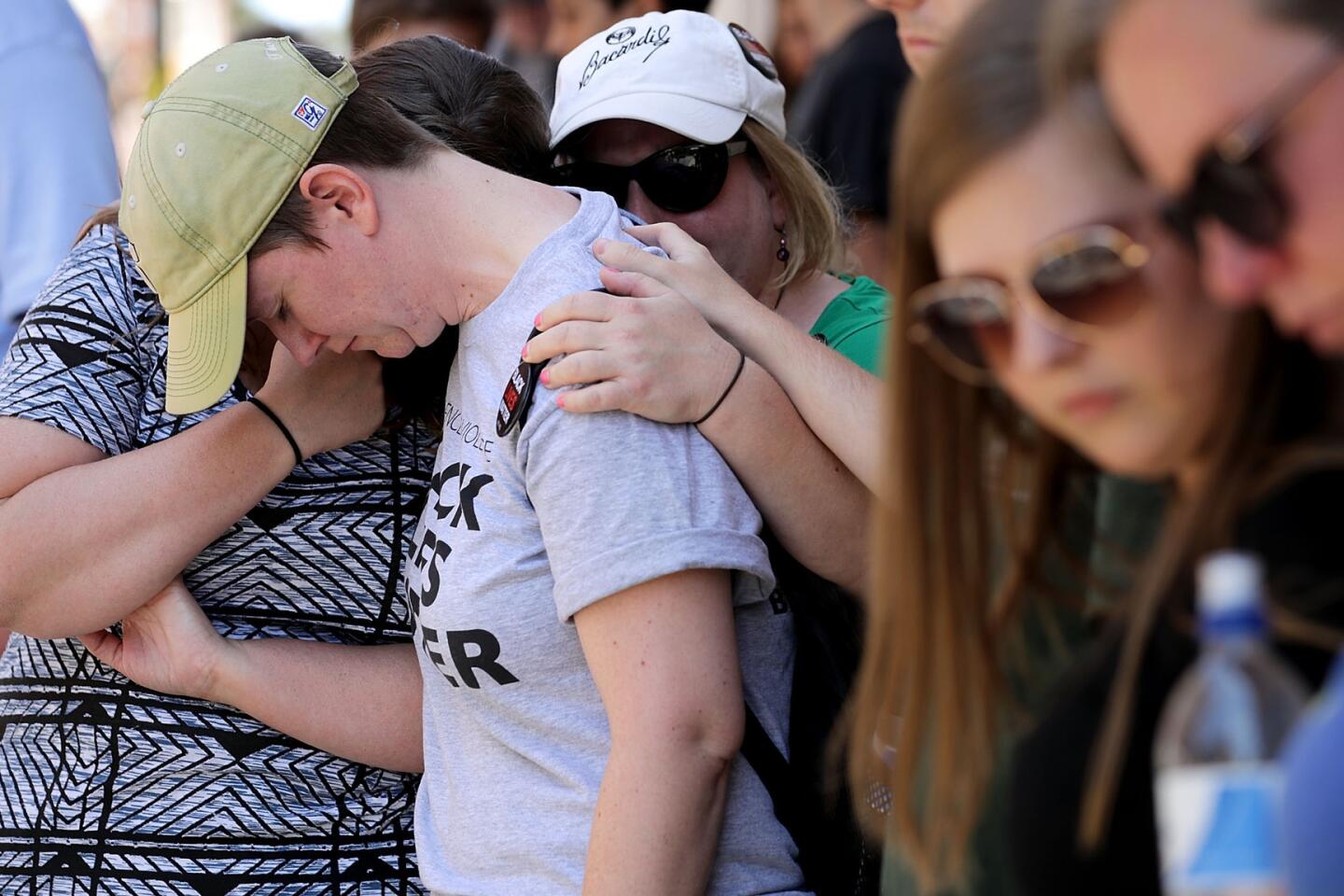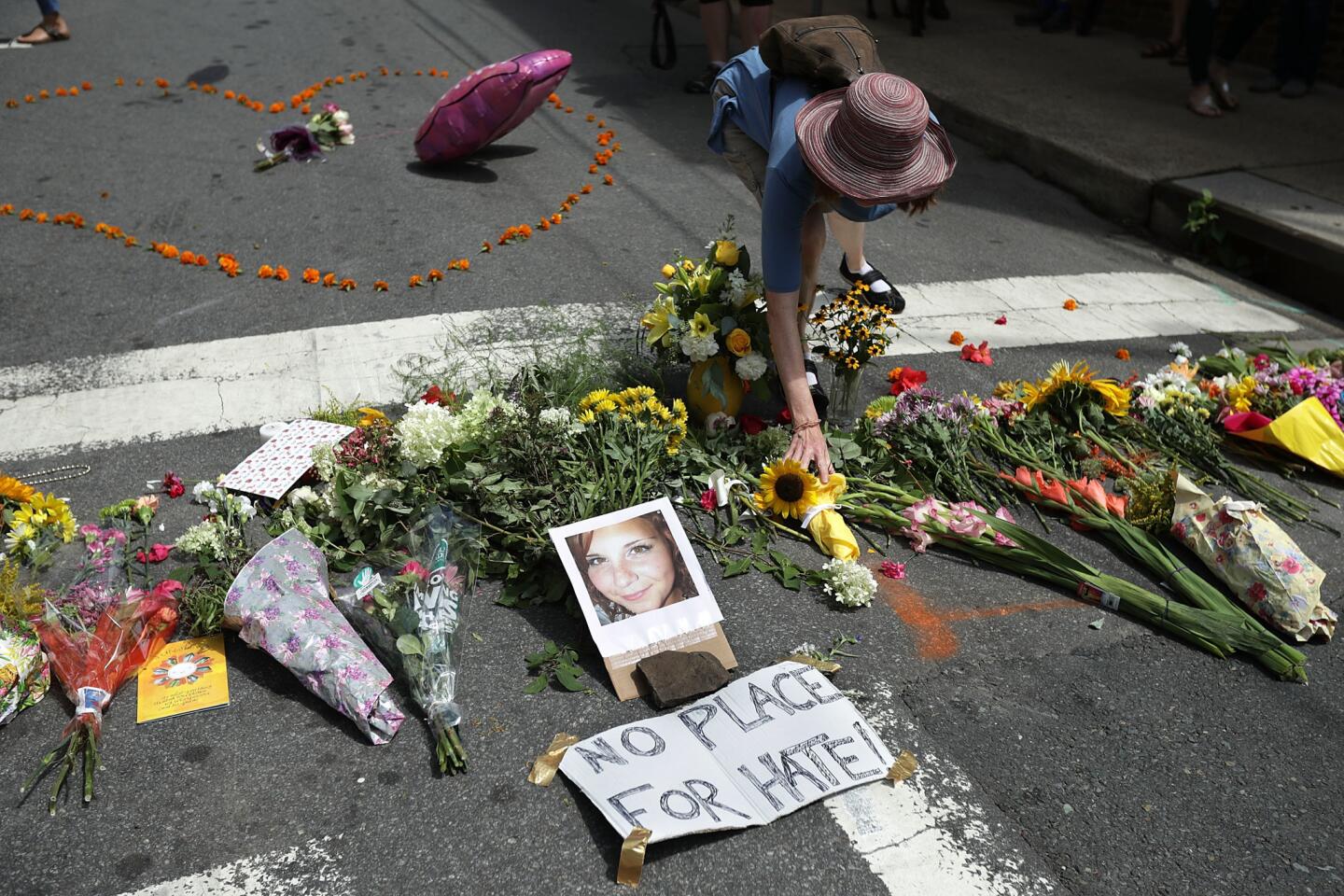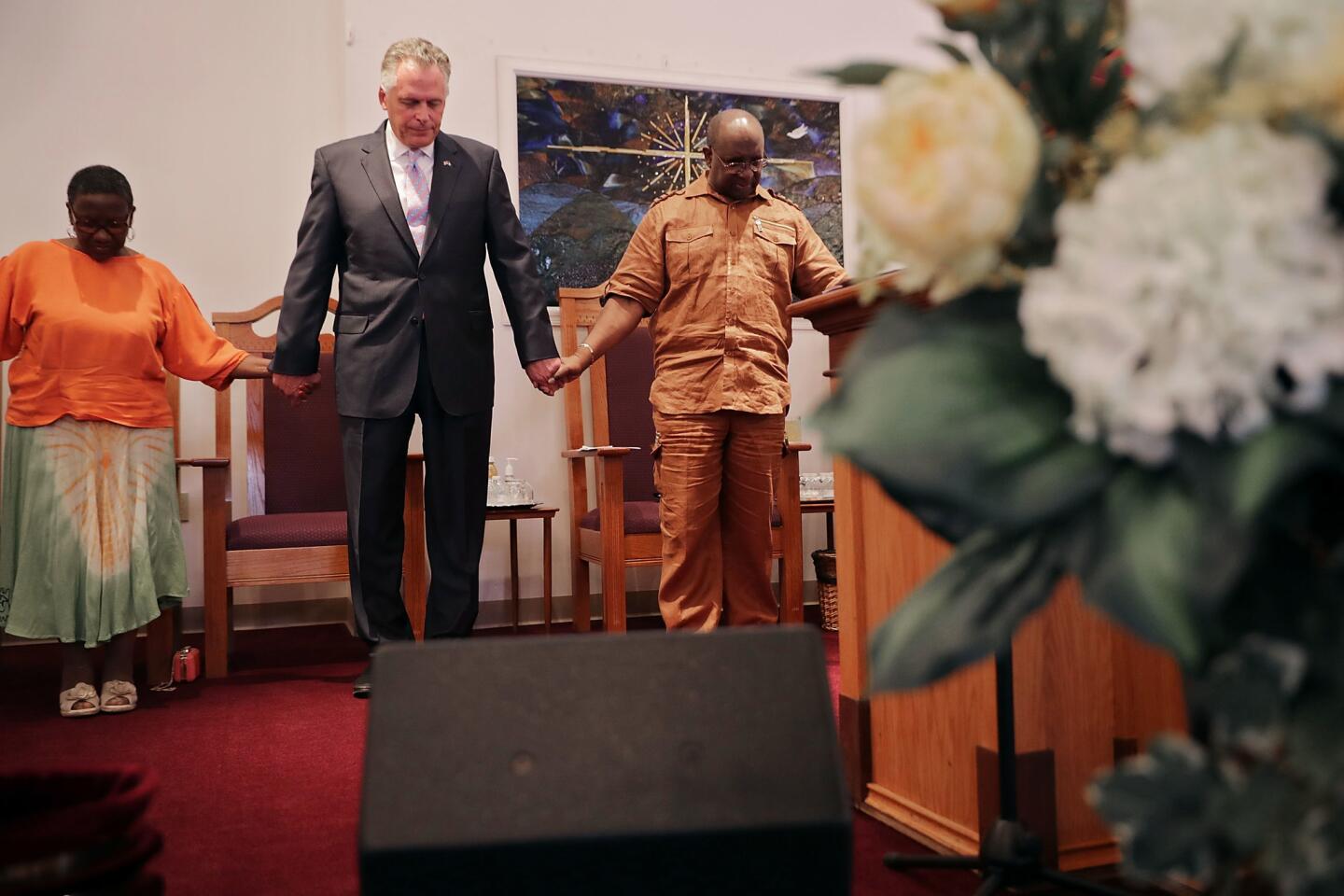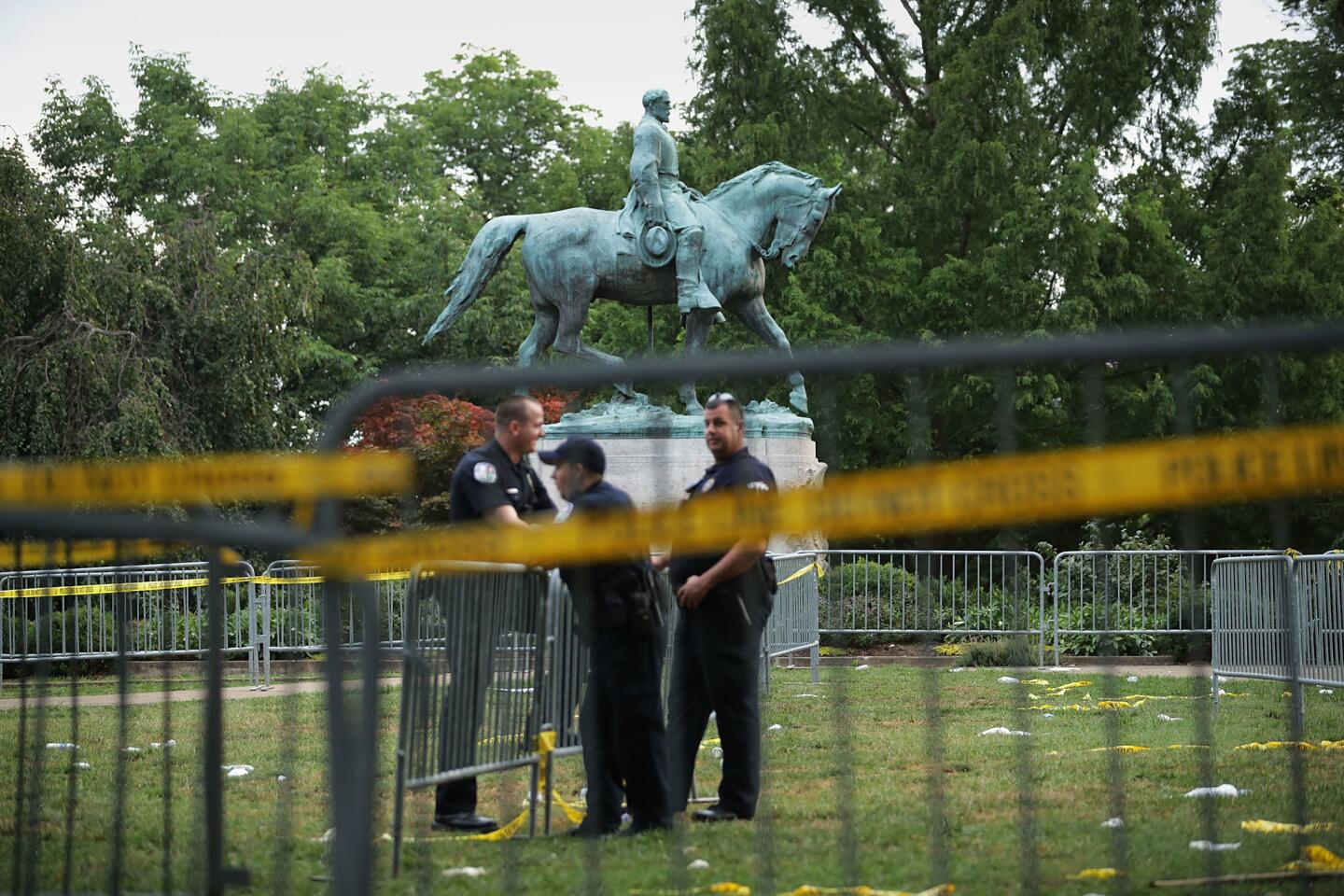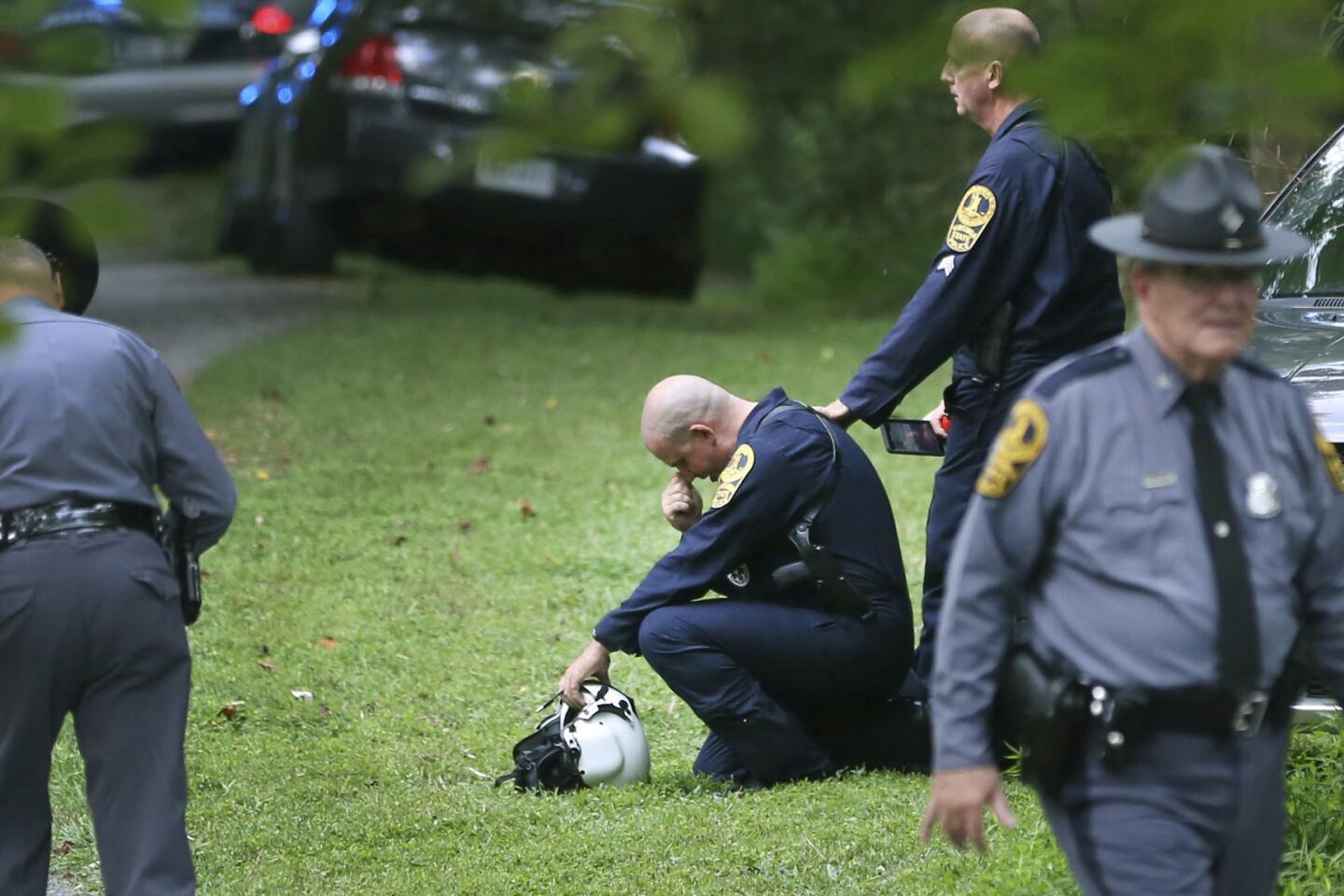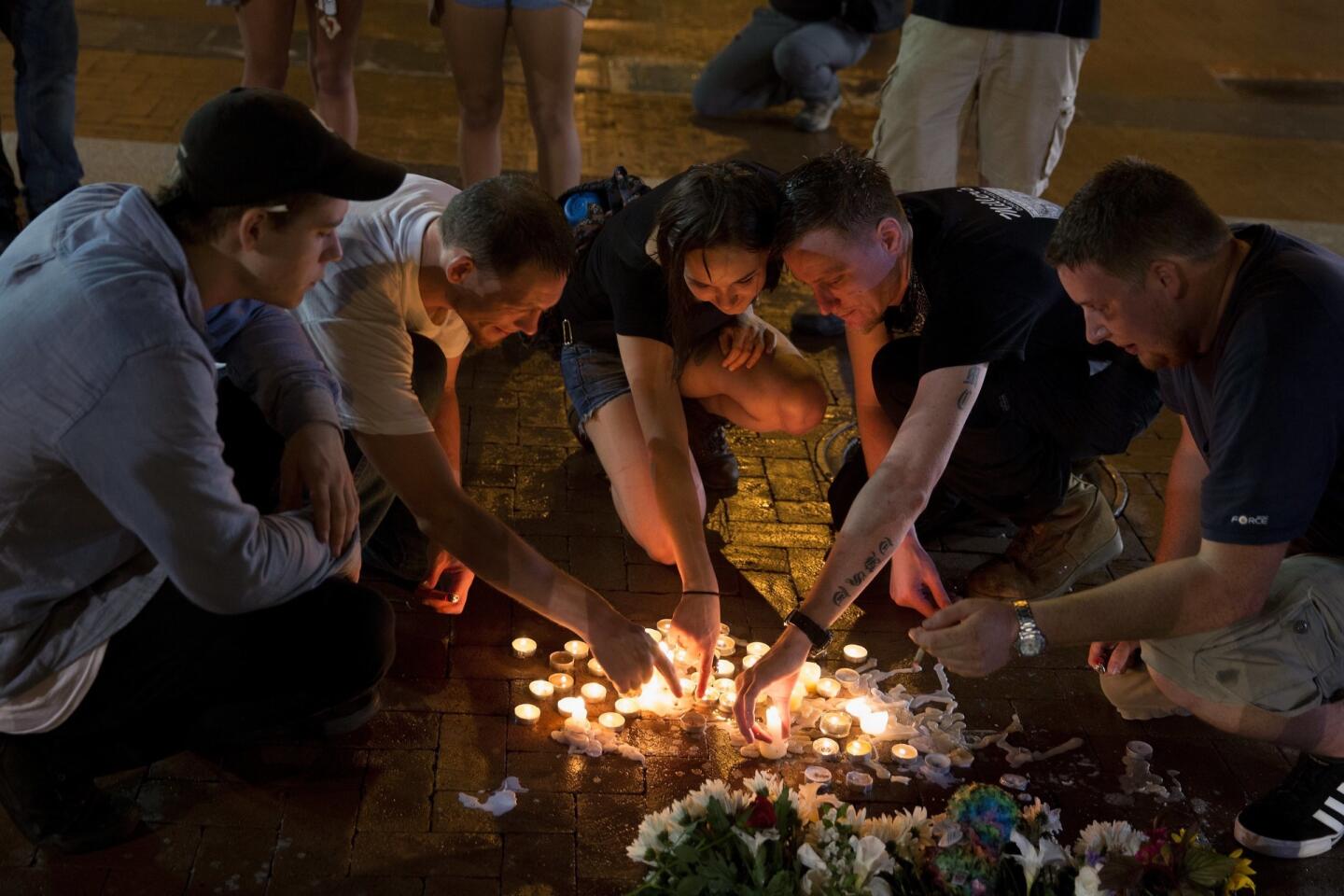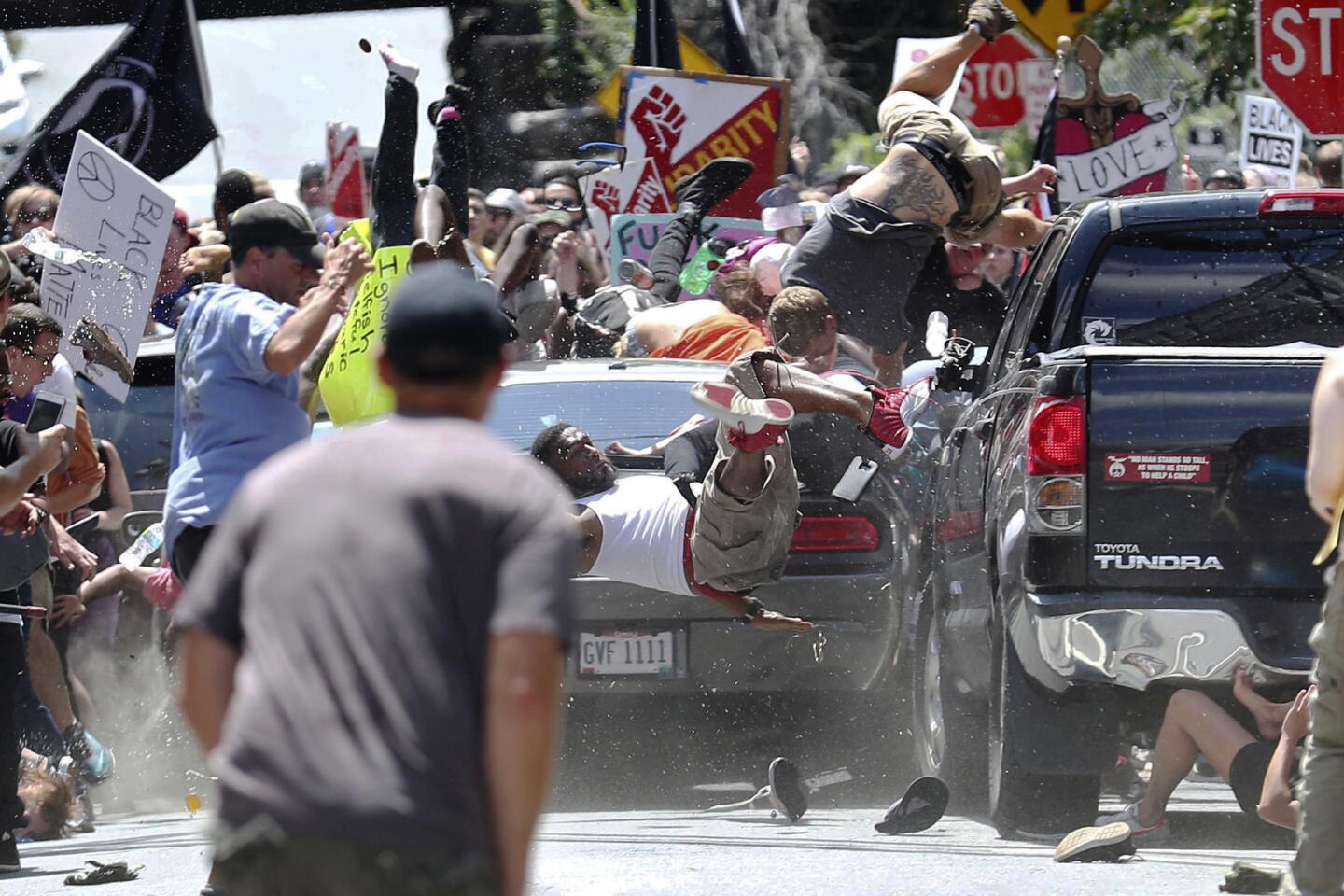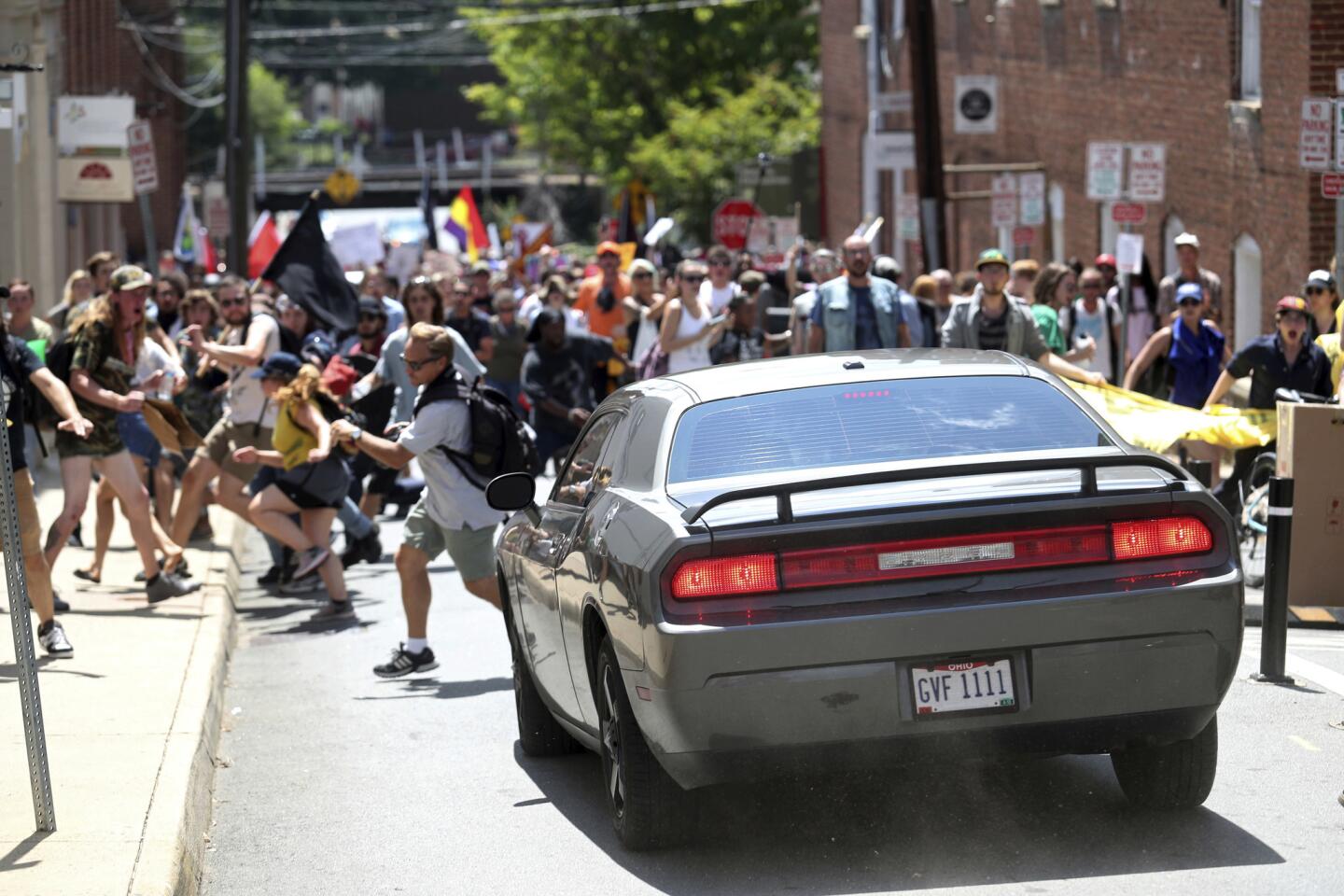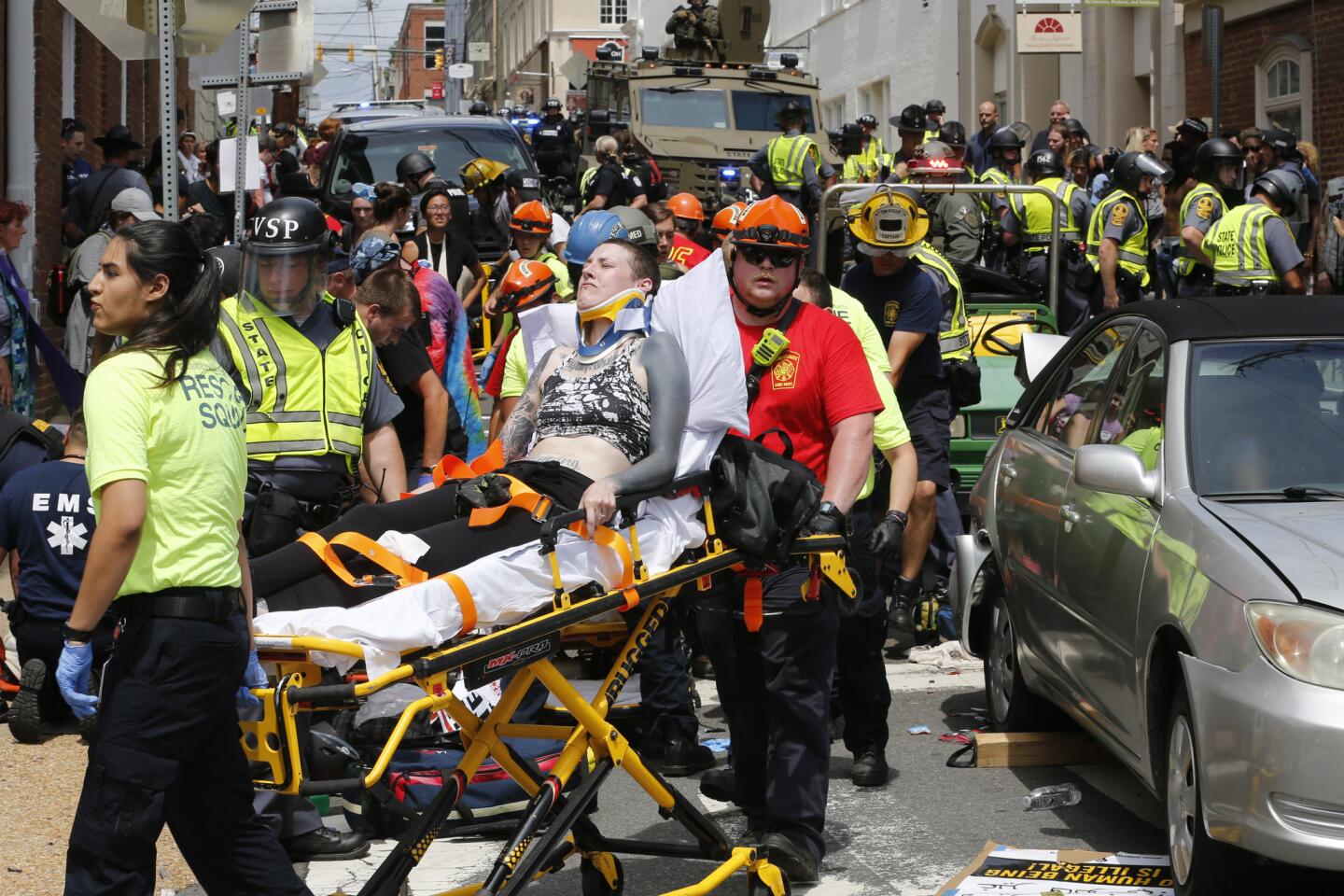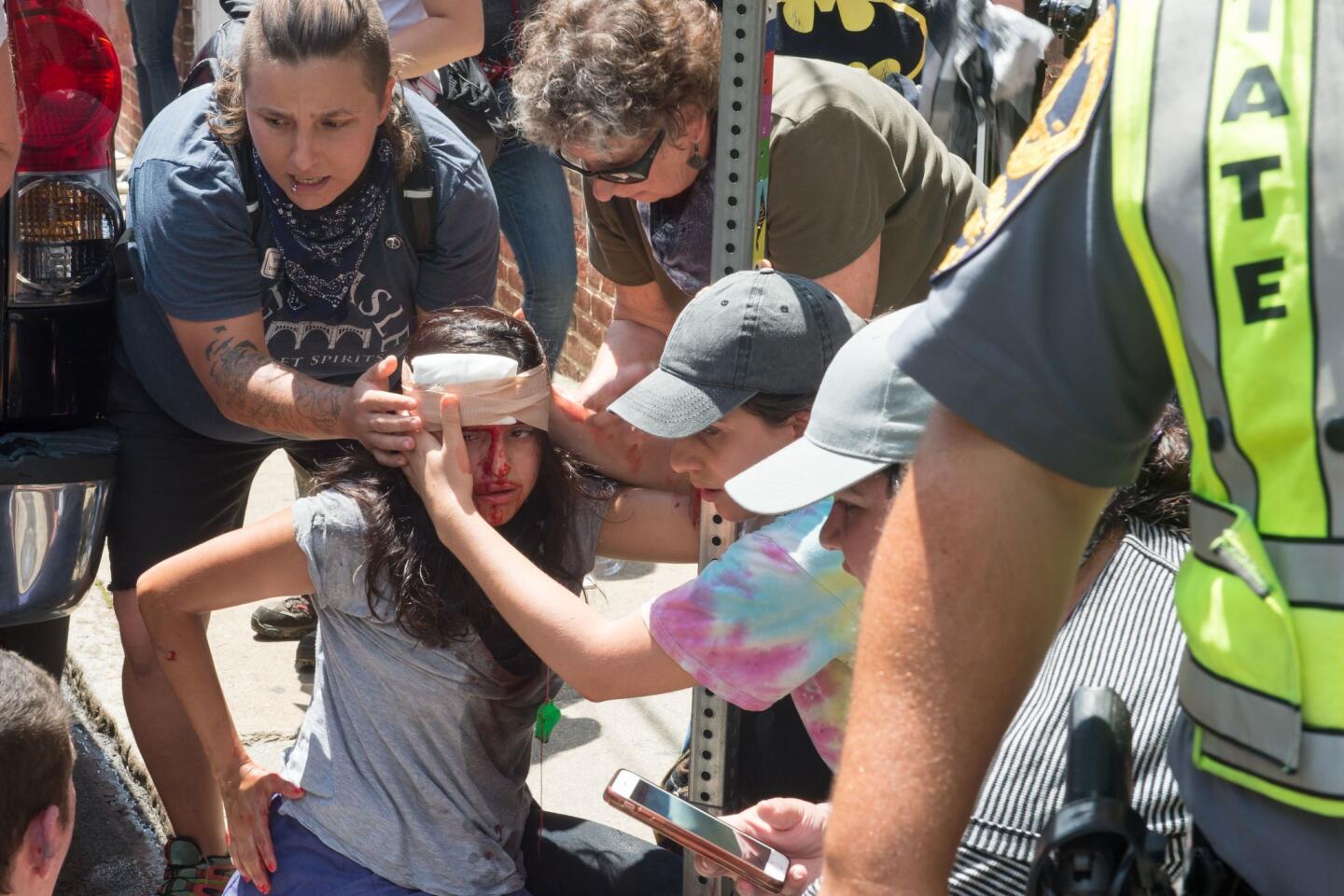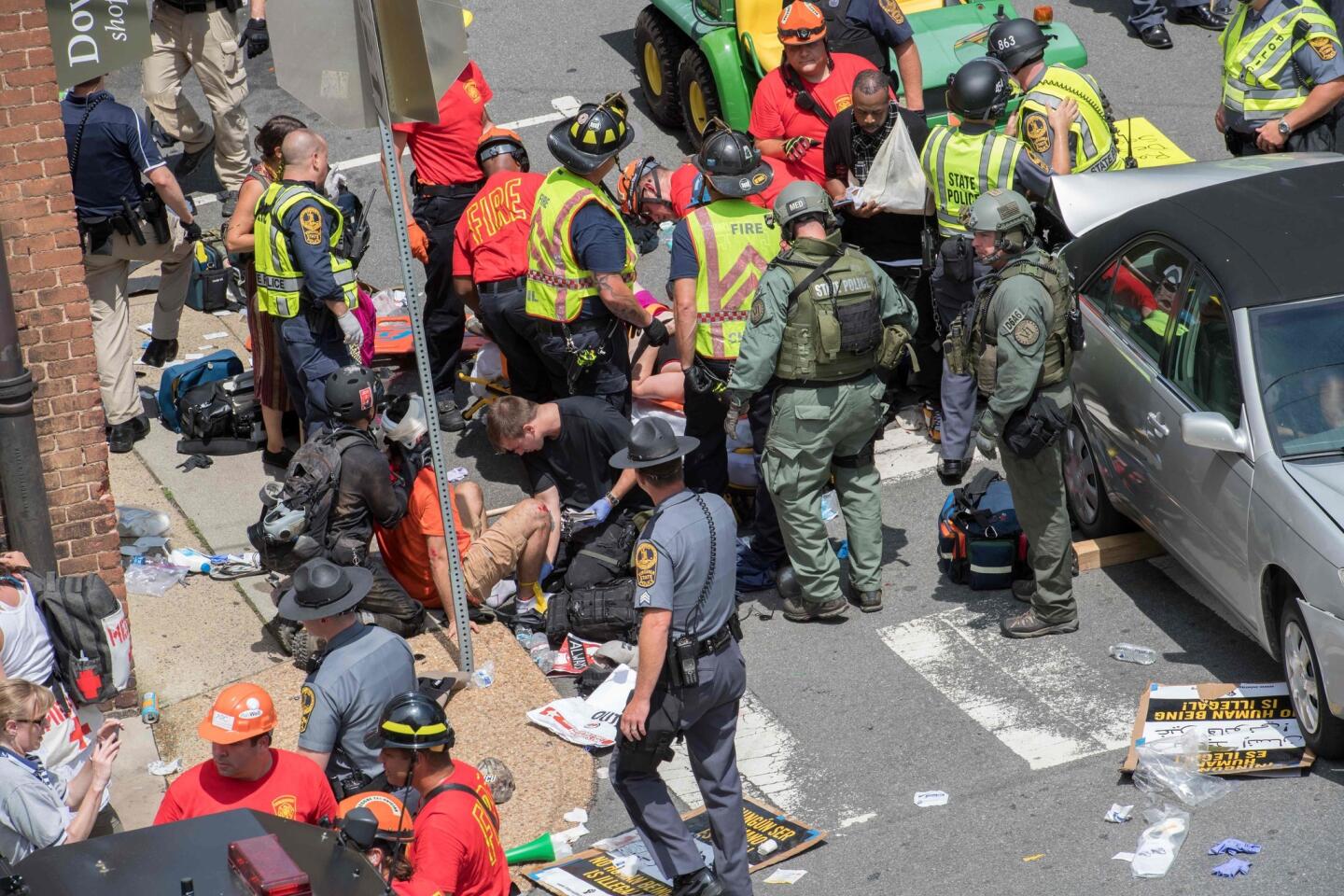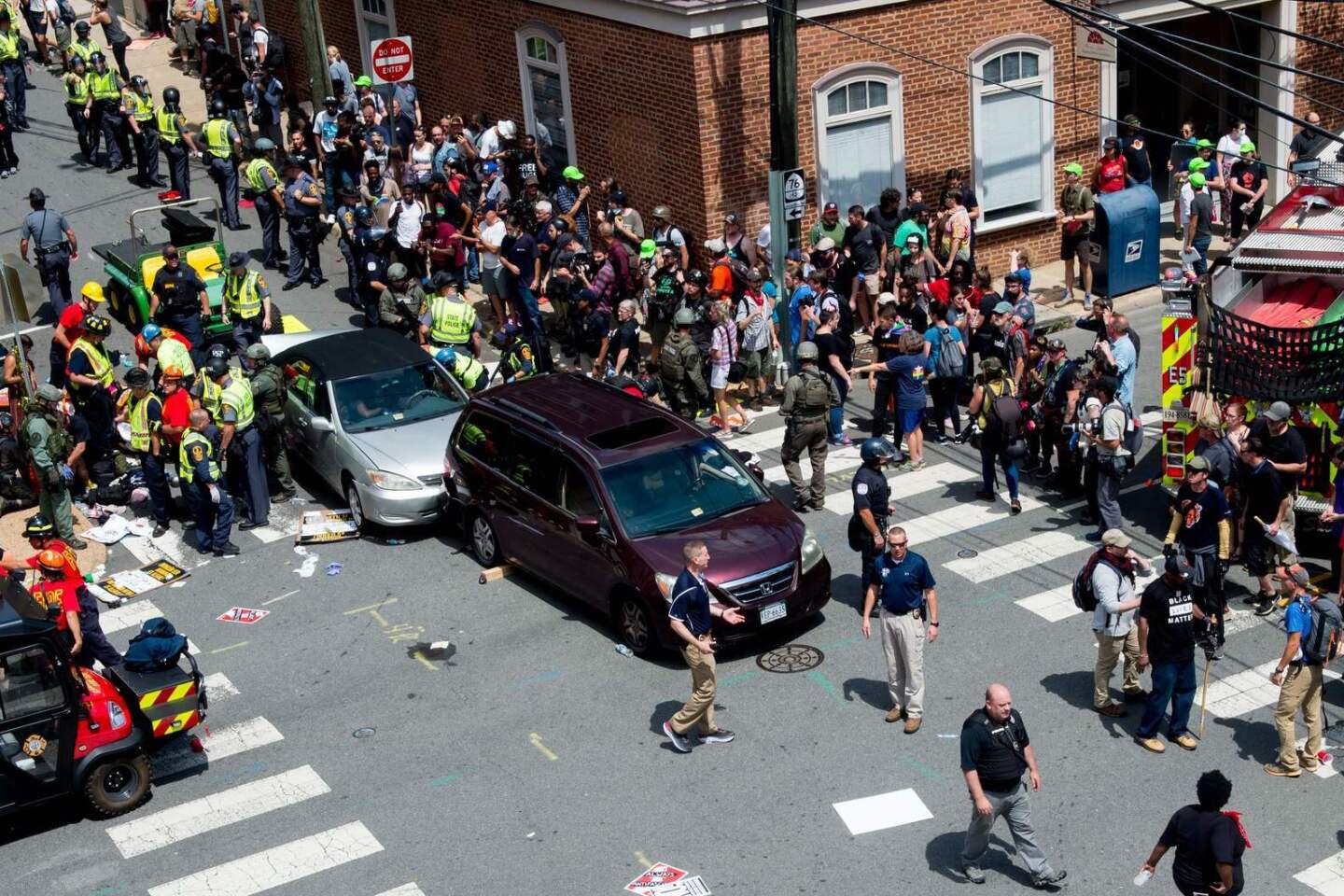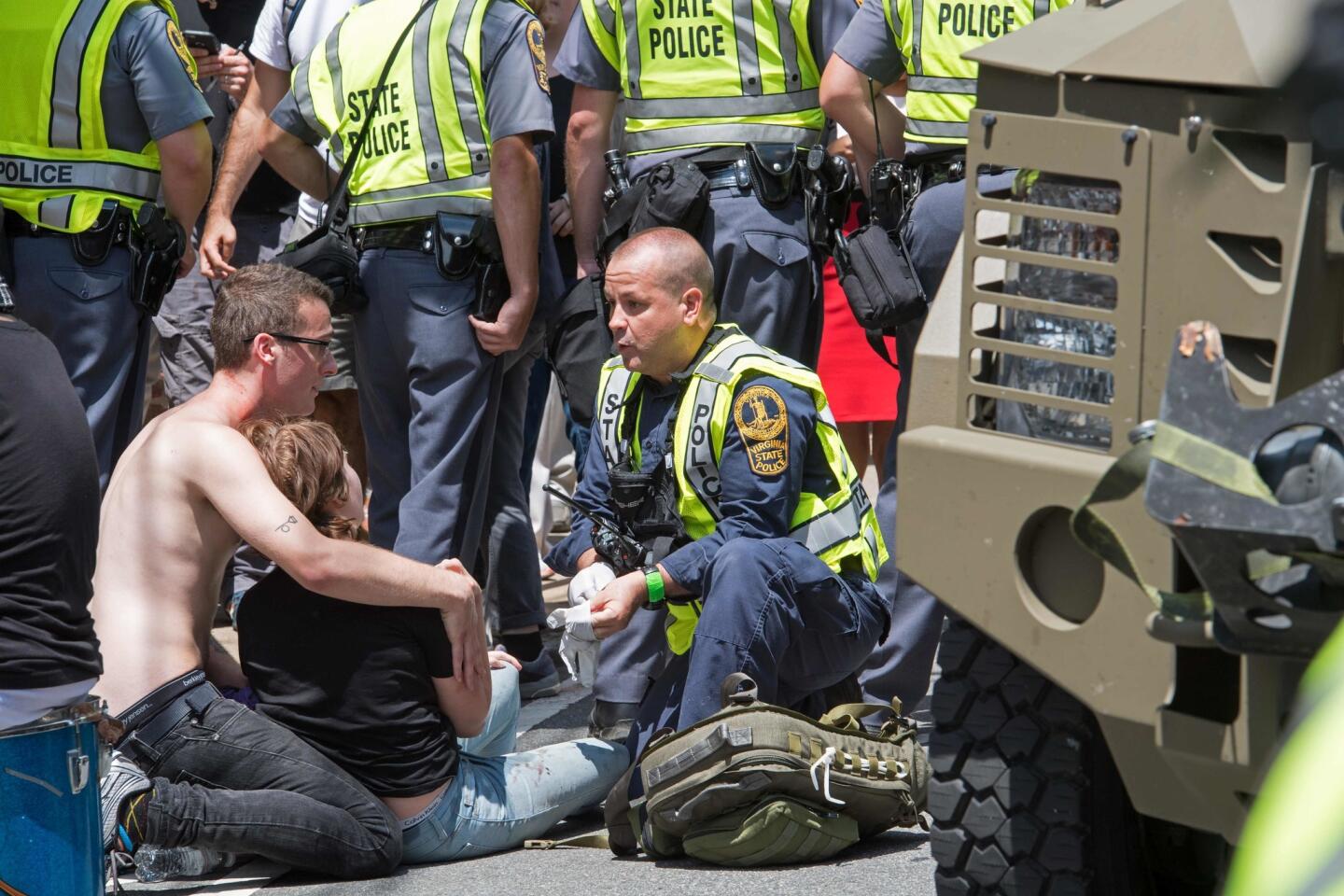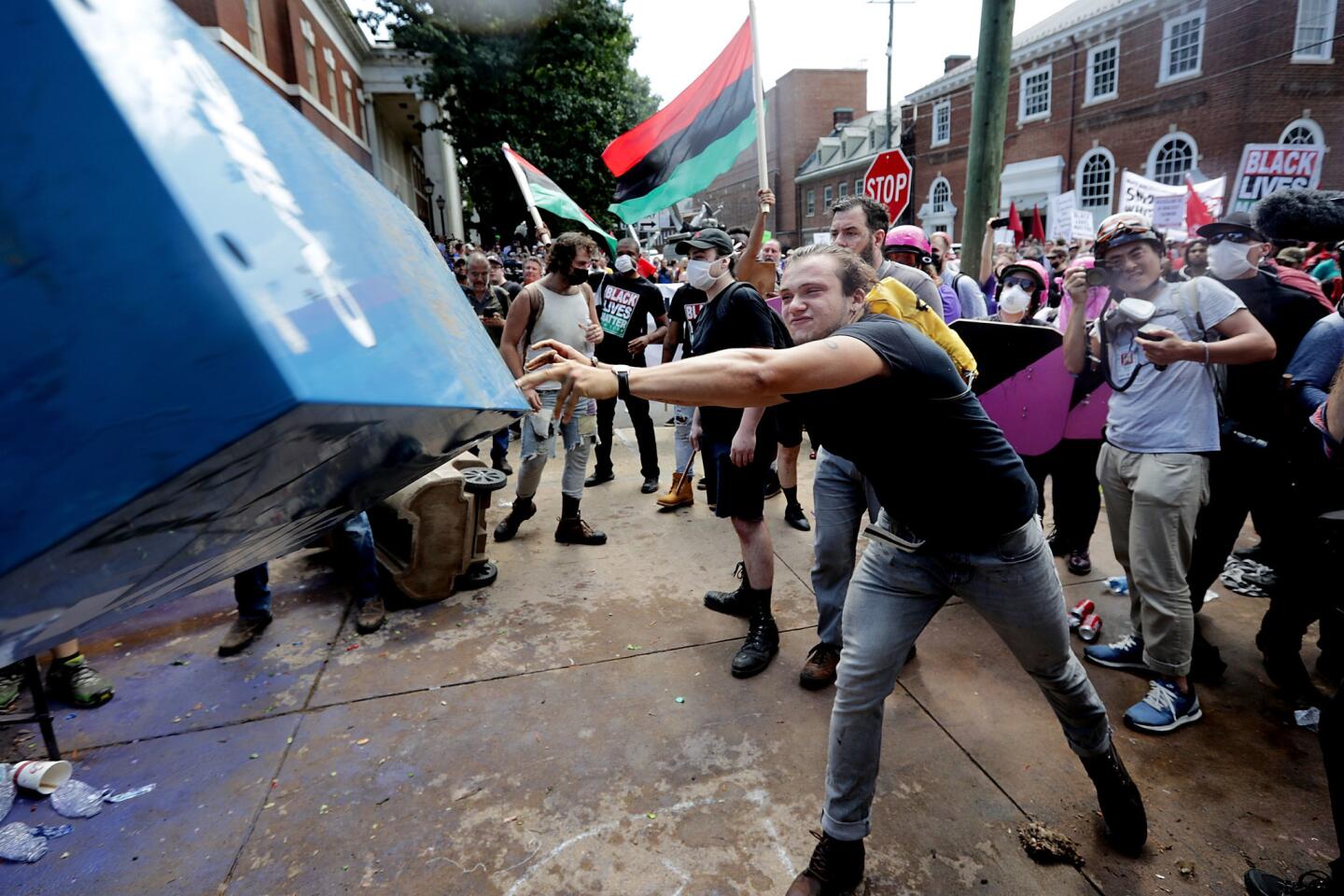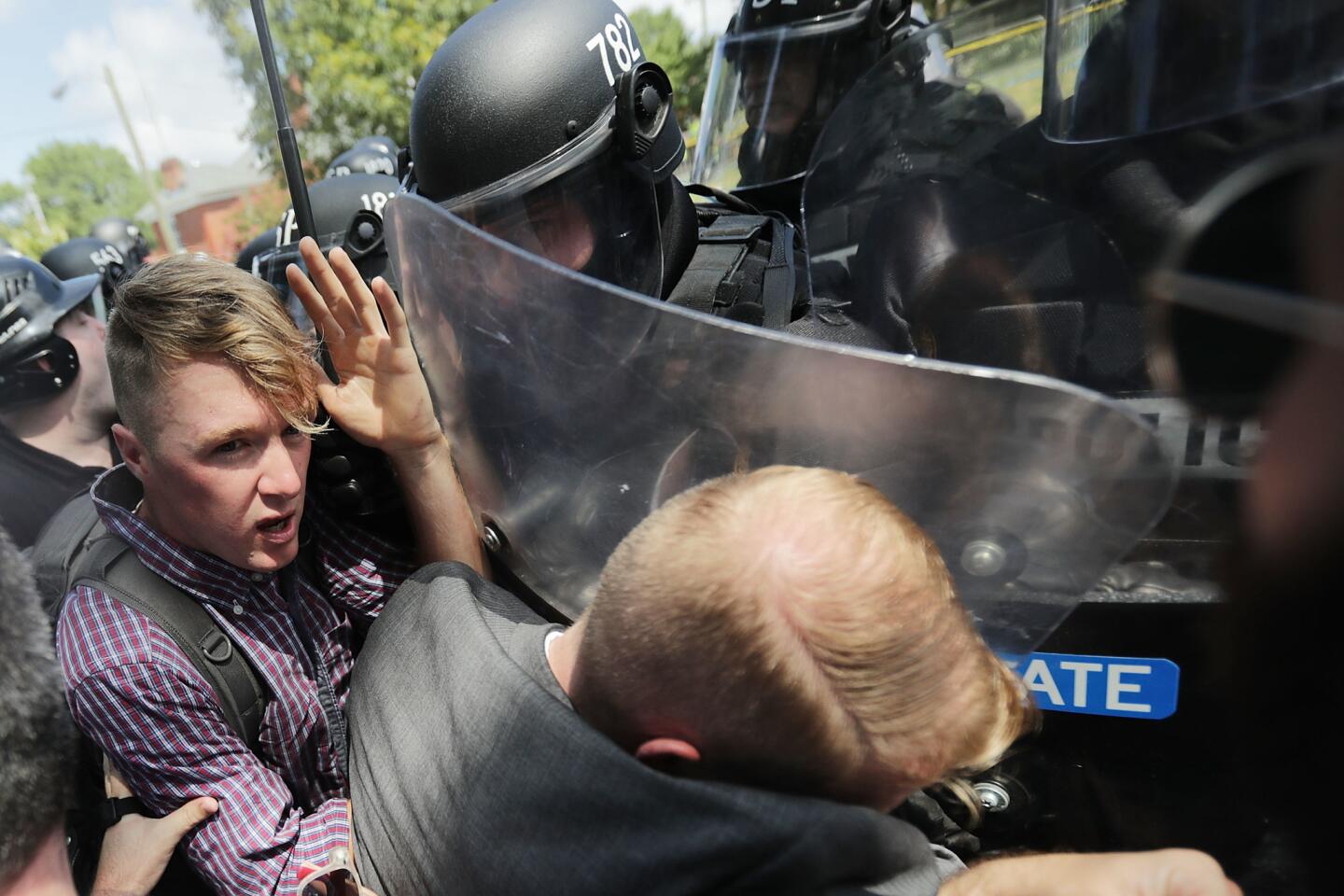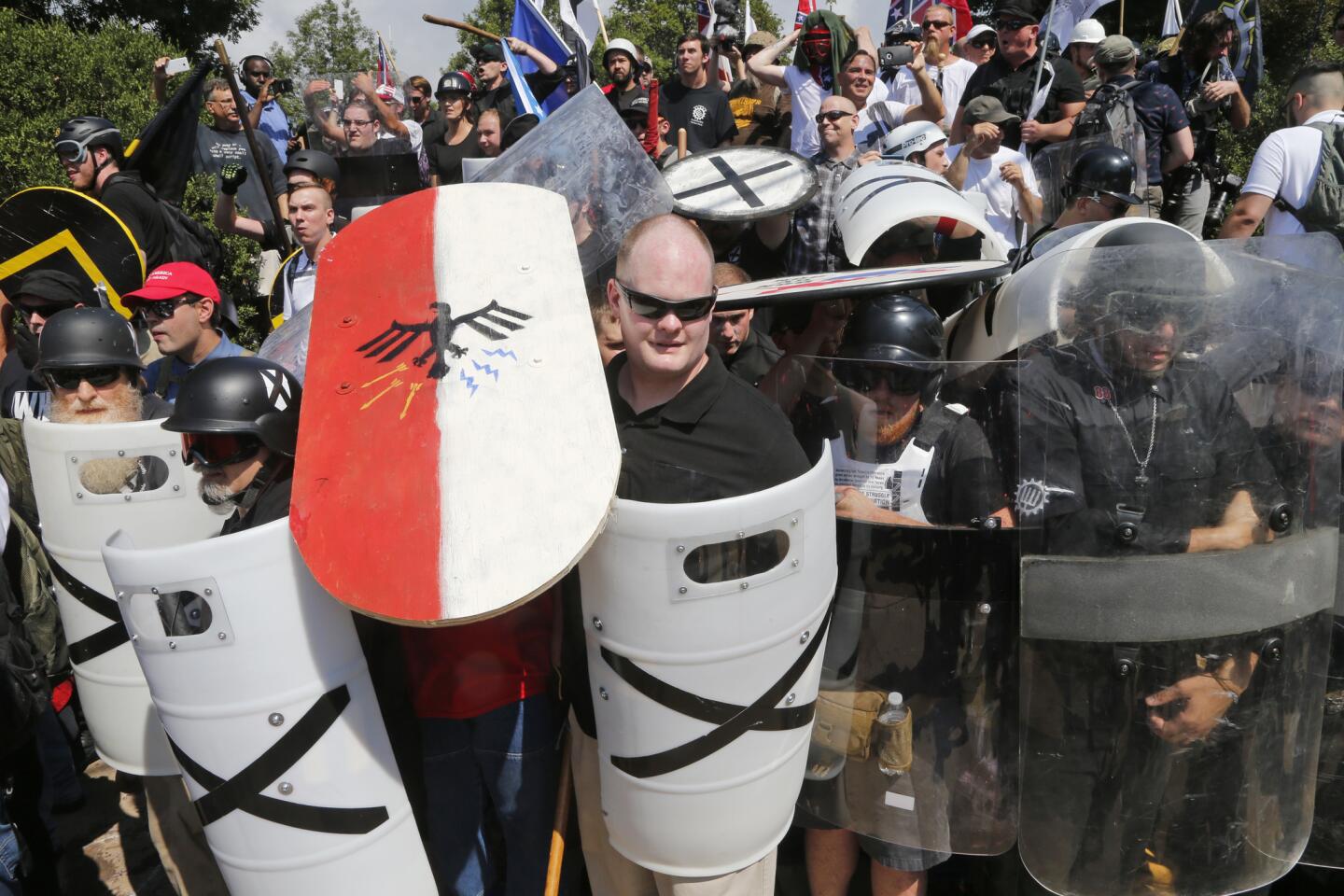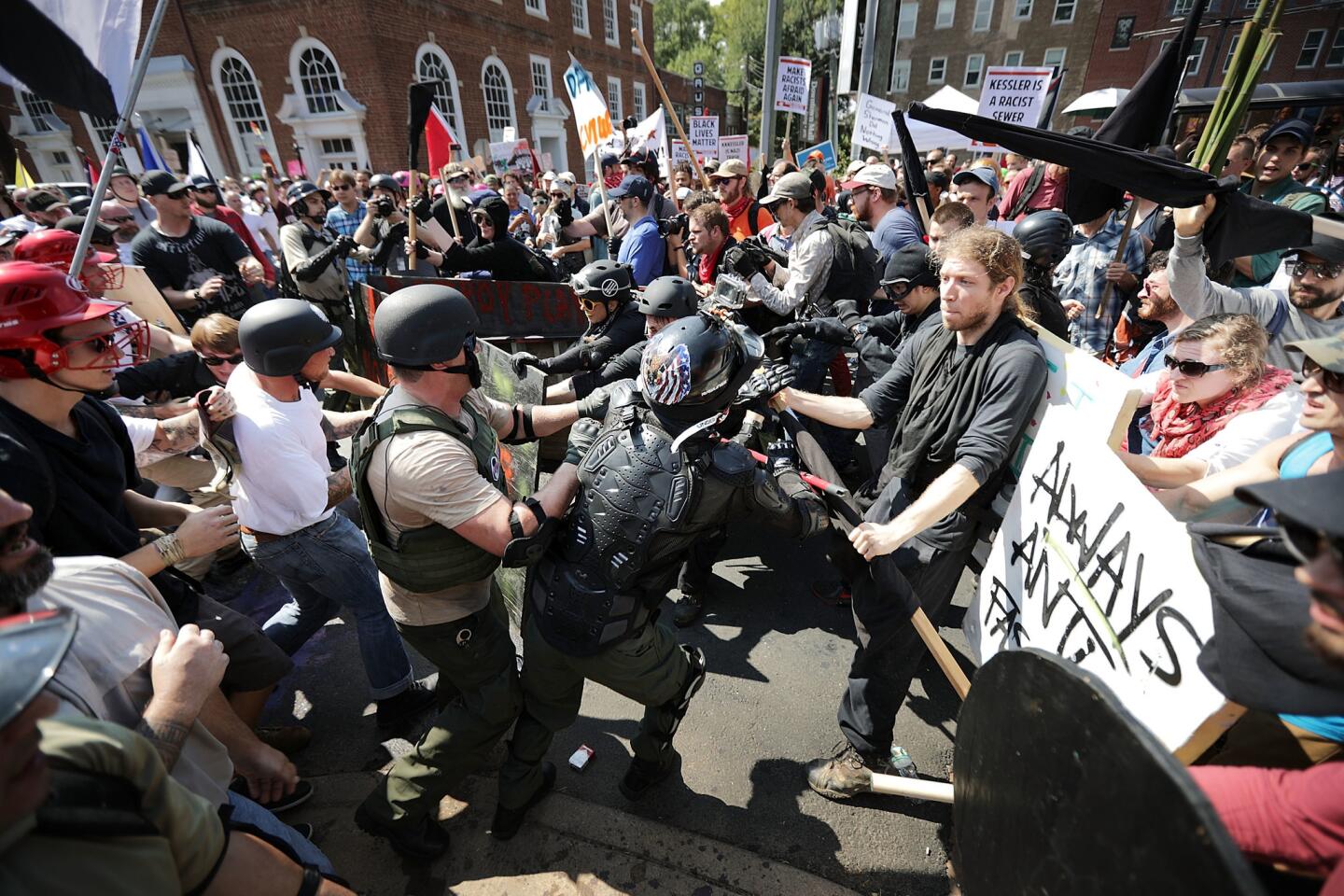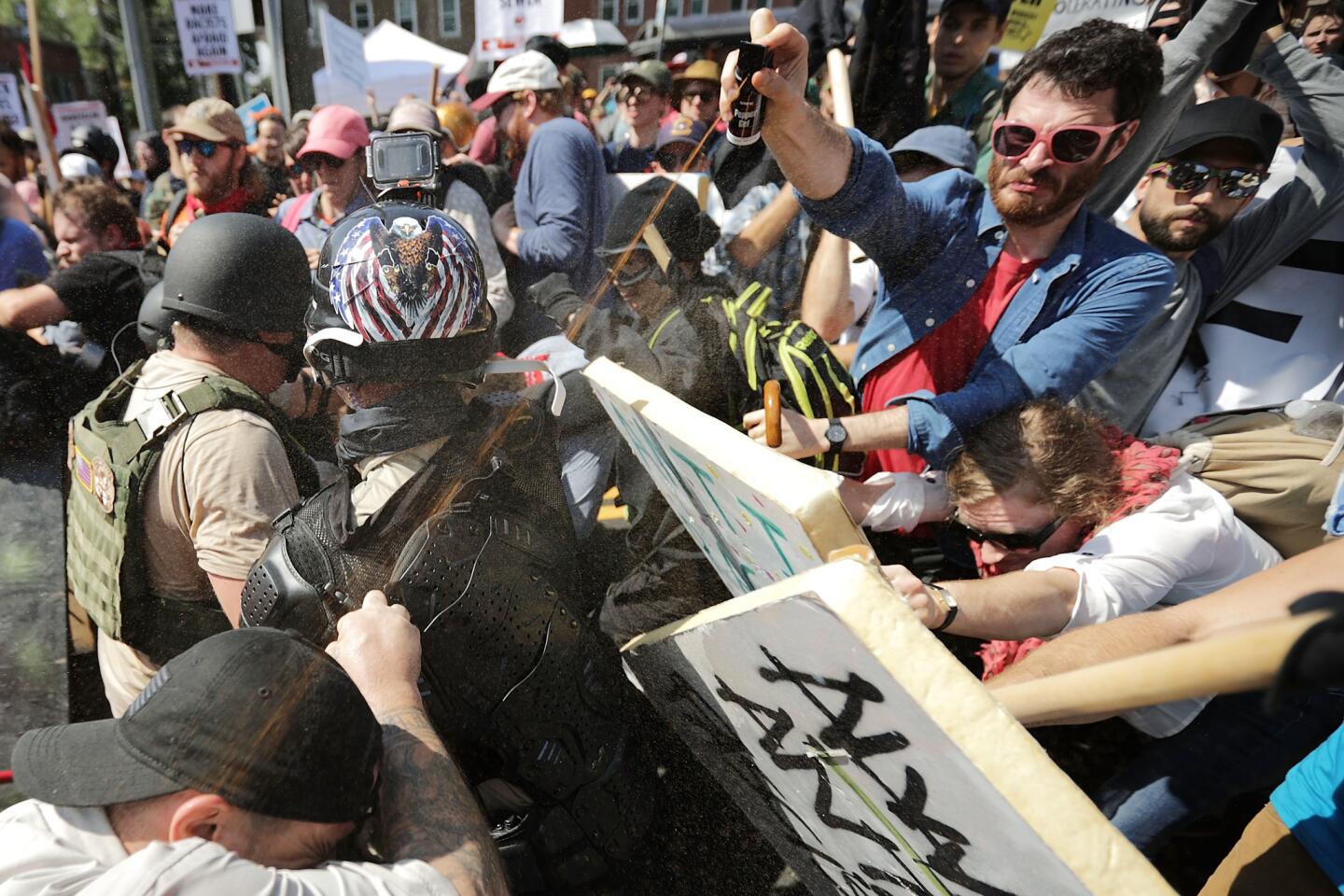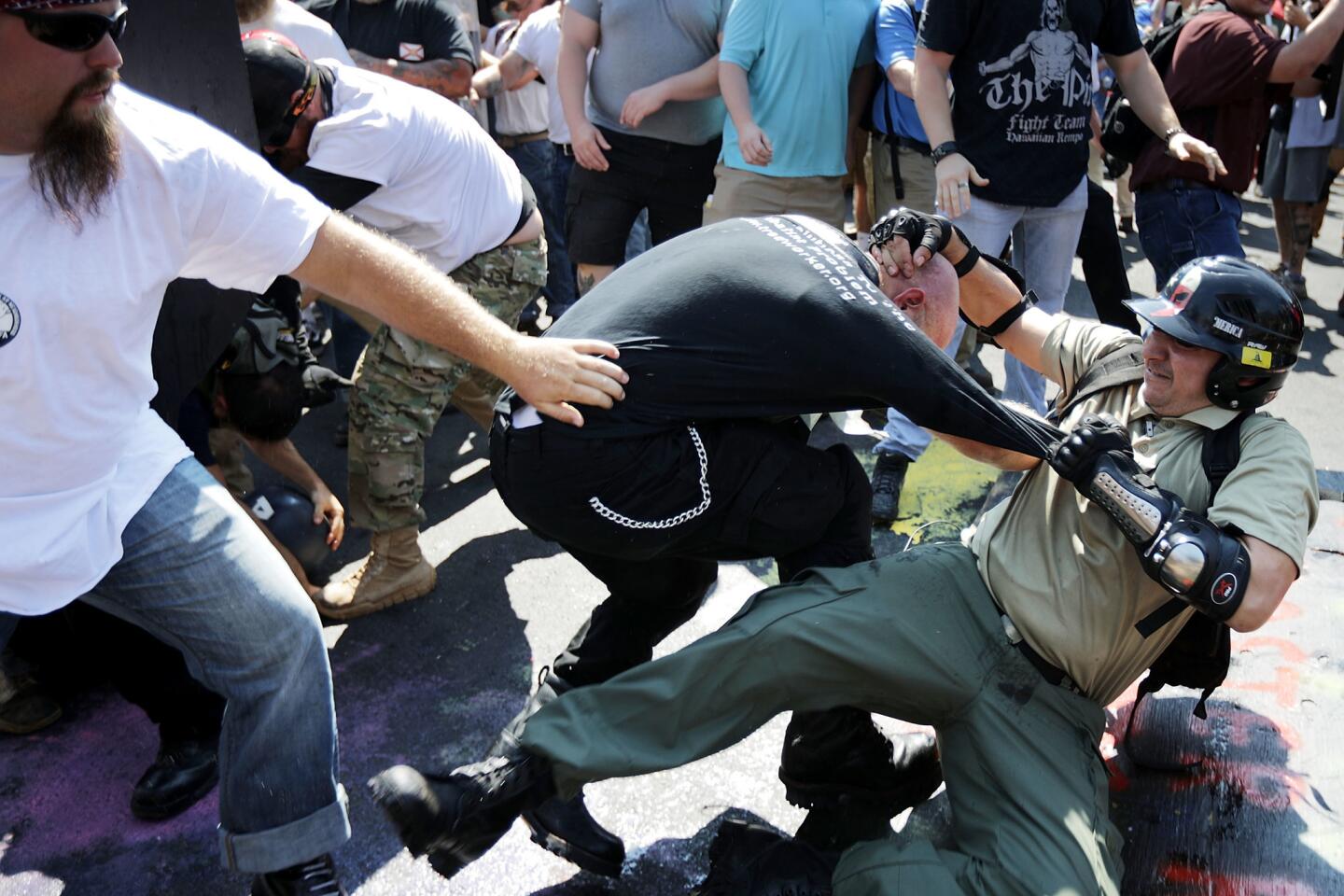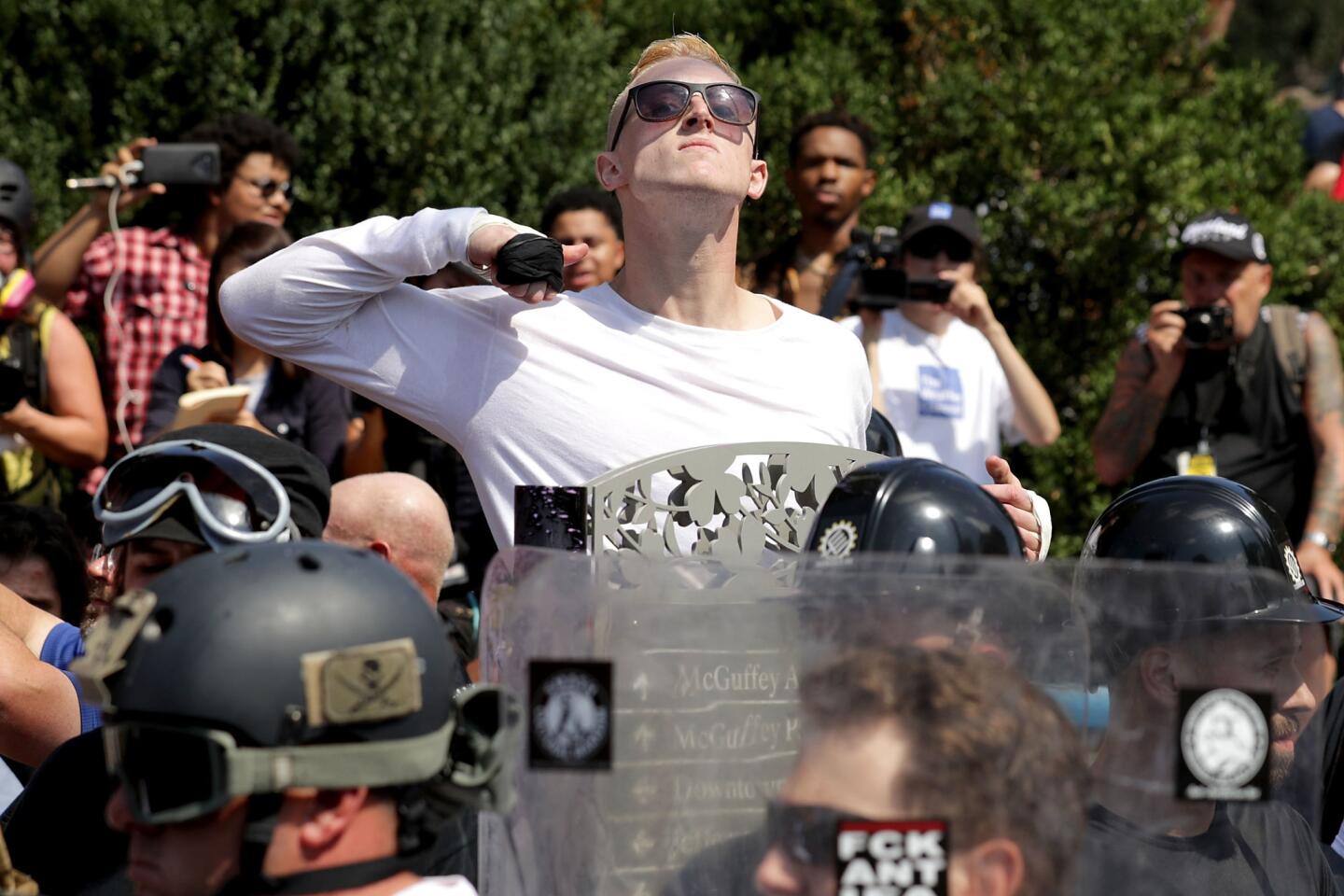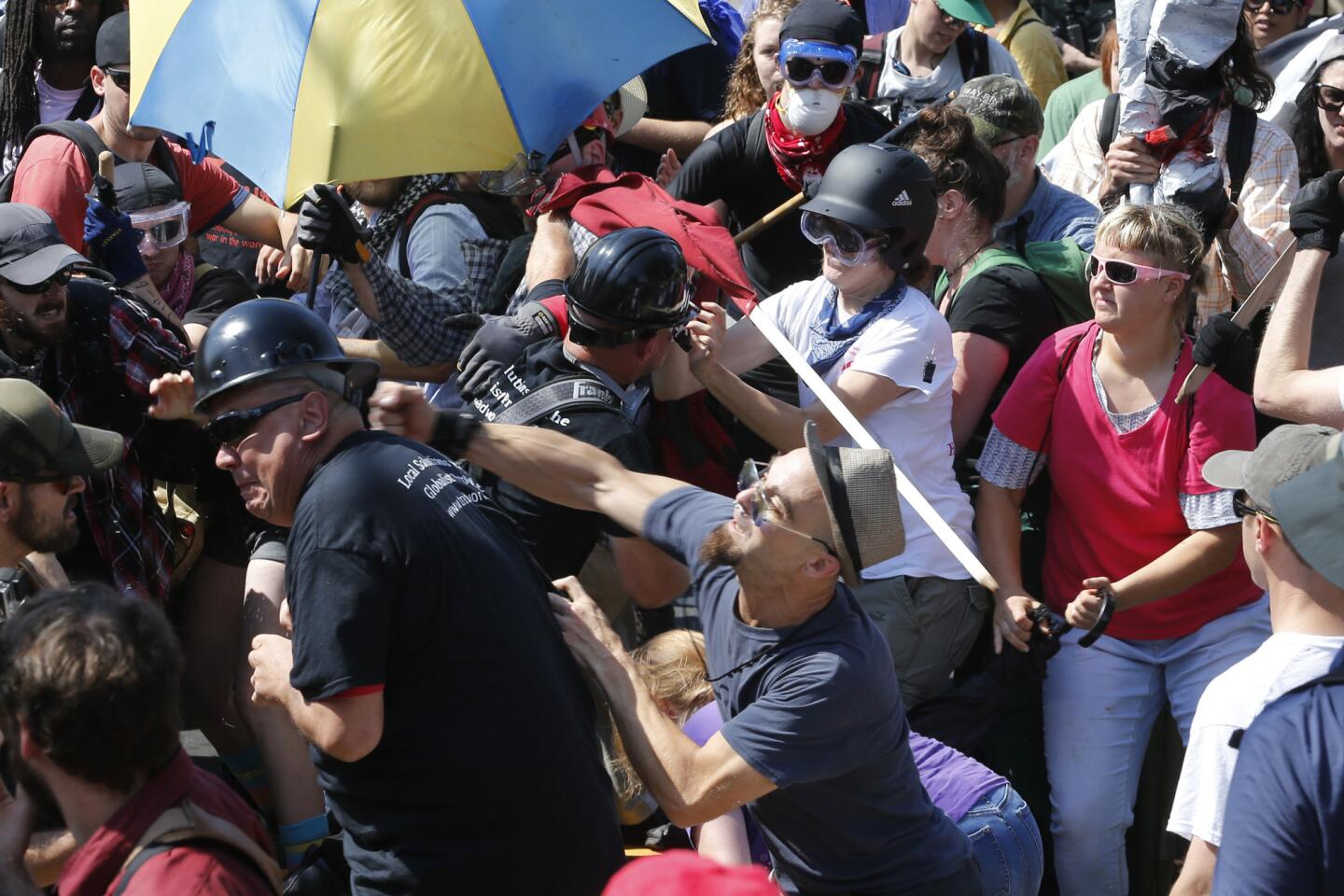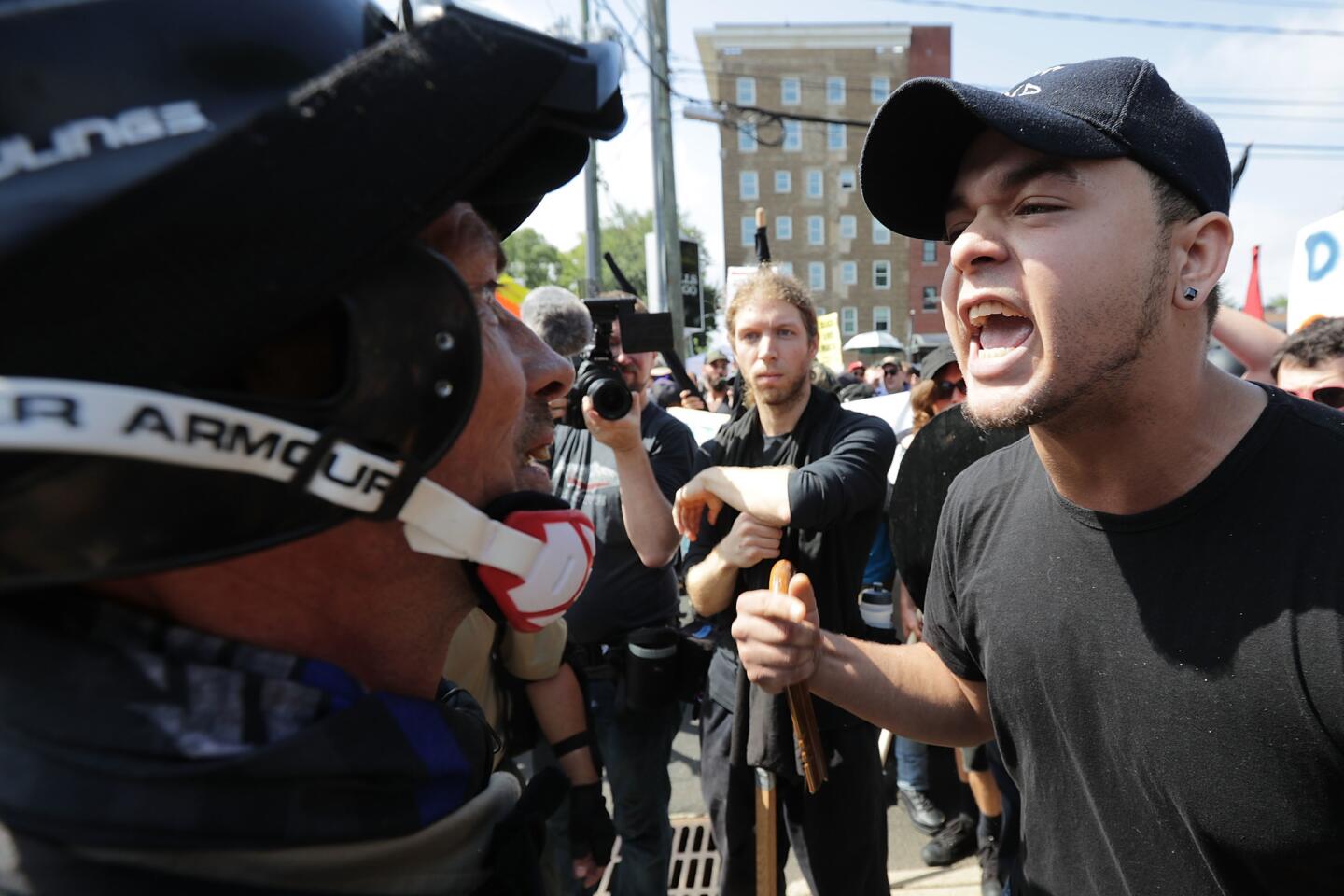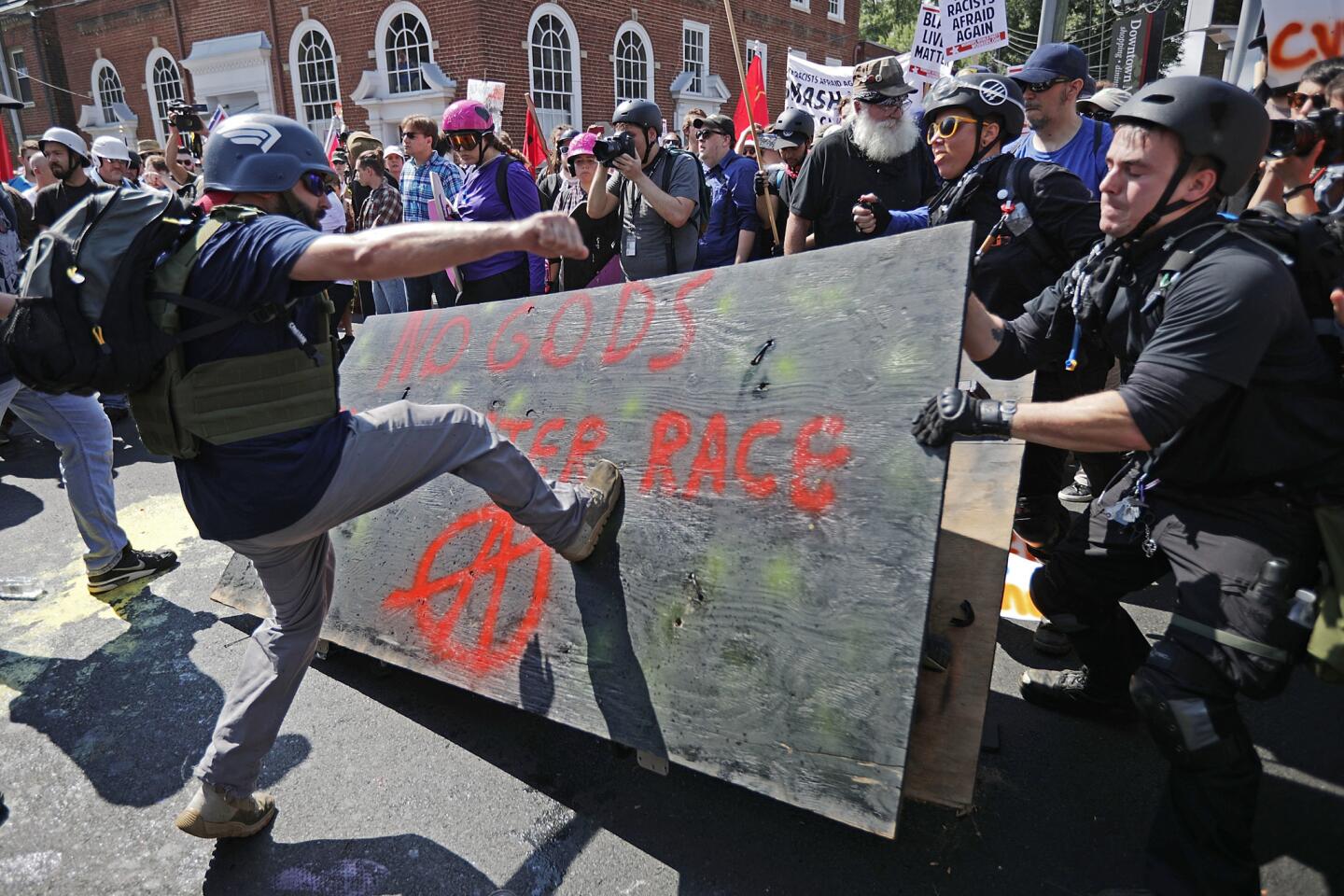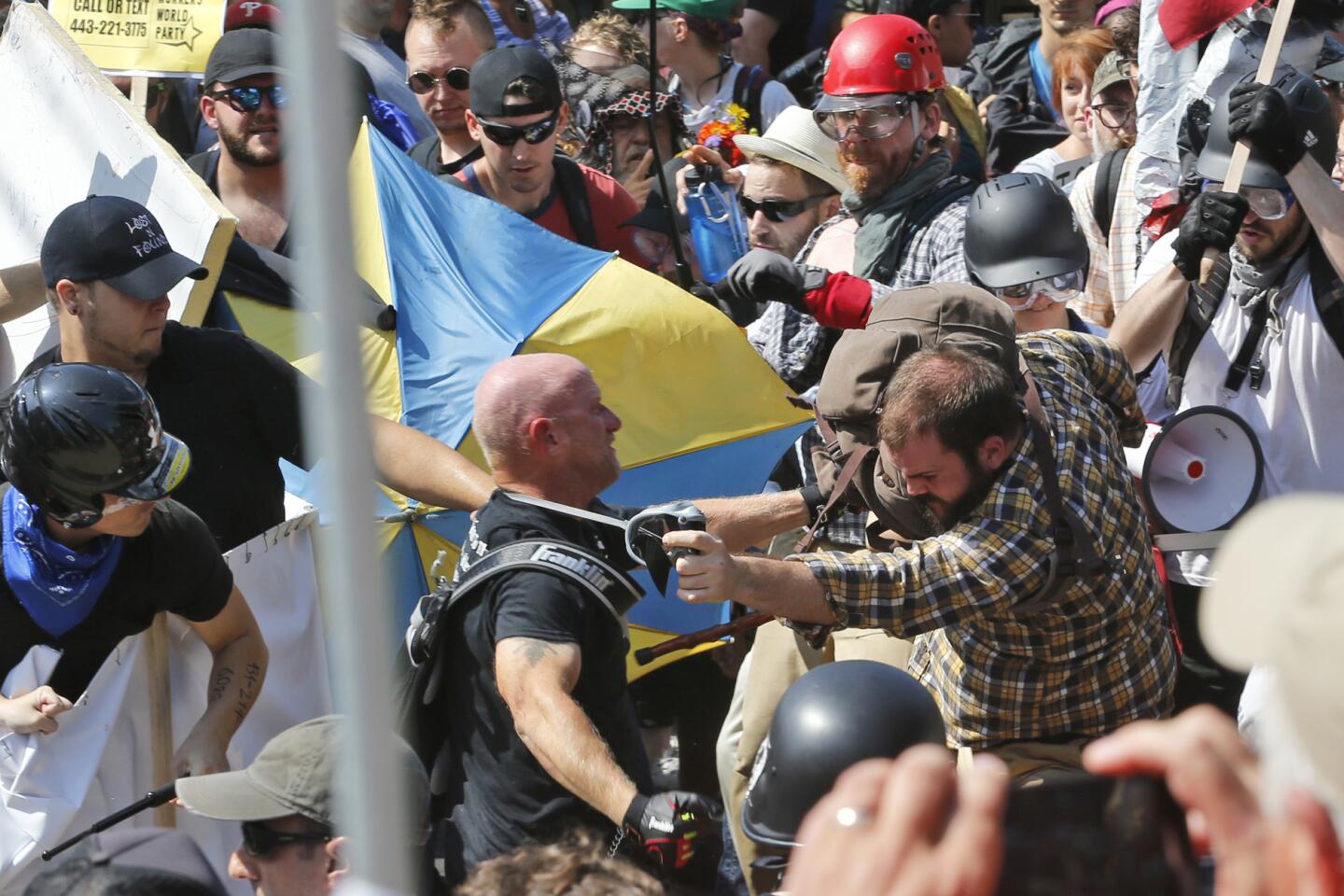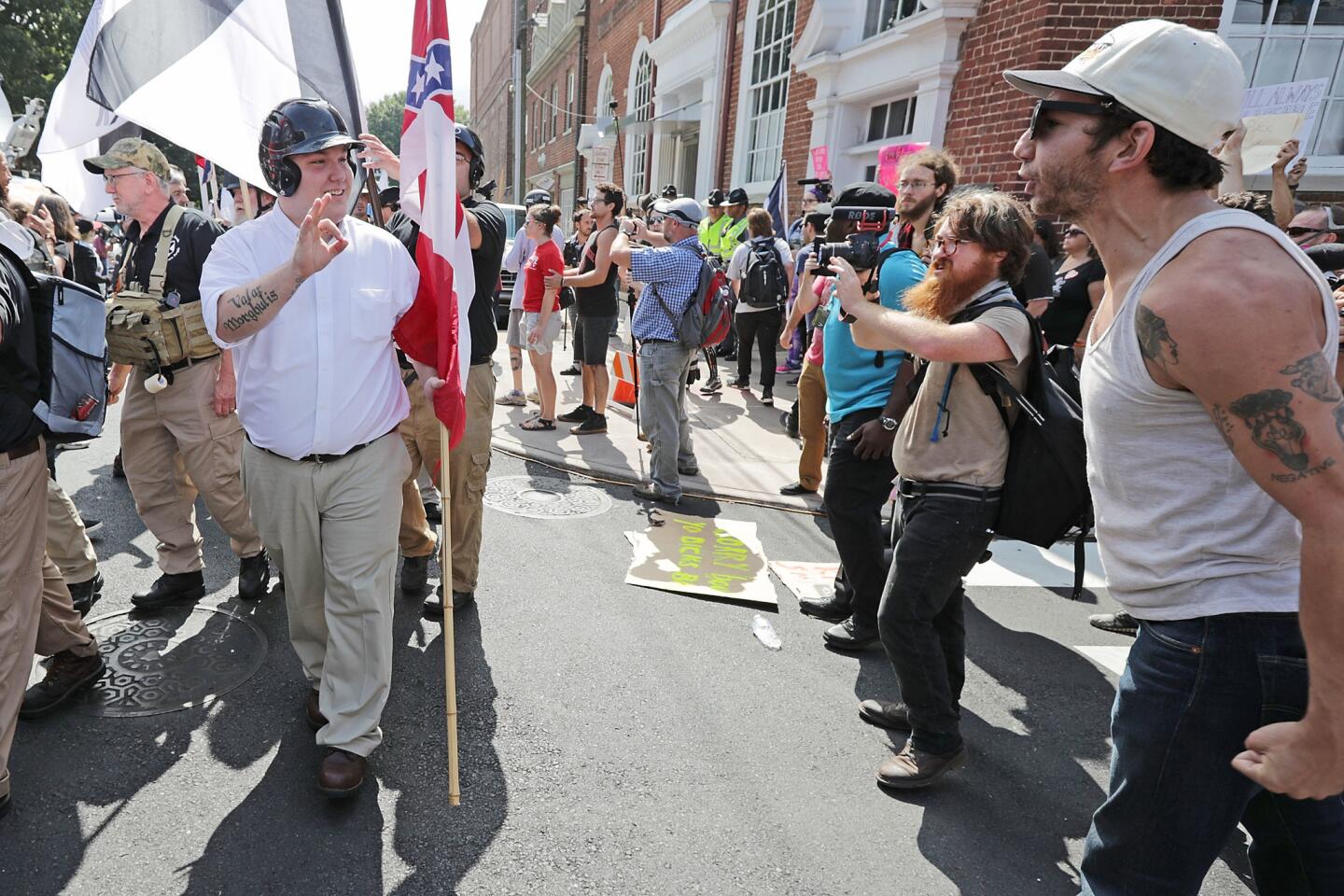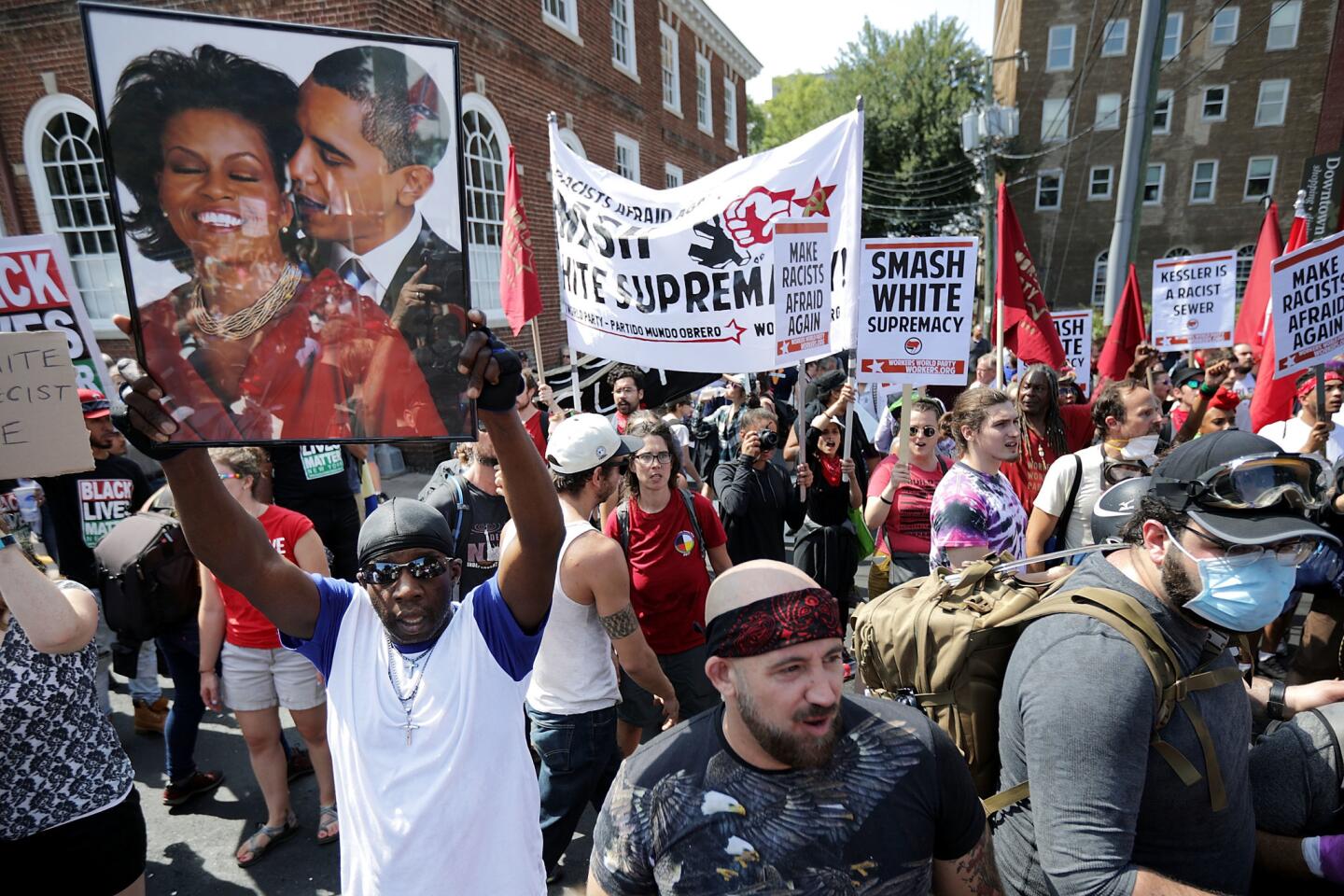Charlottesville increases security for anniversary of last year’s violence
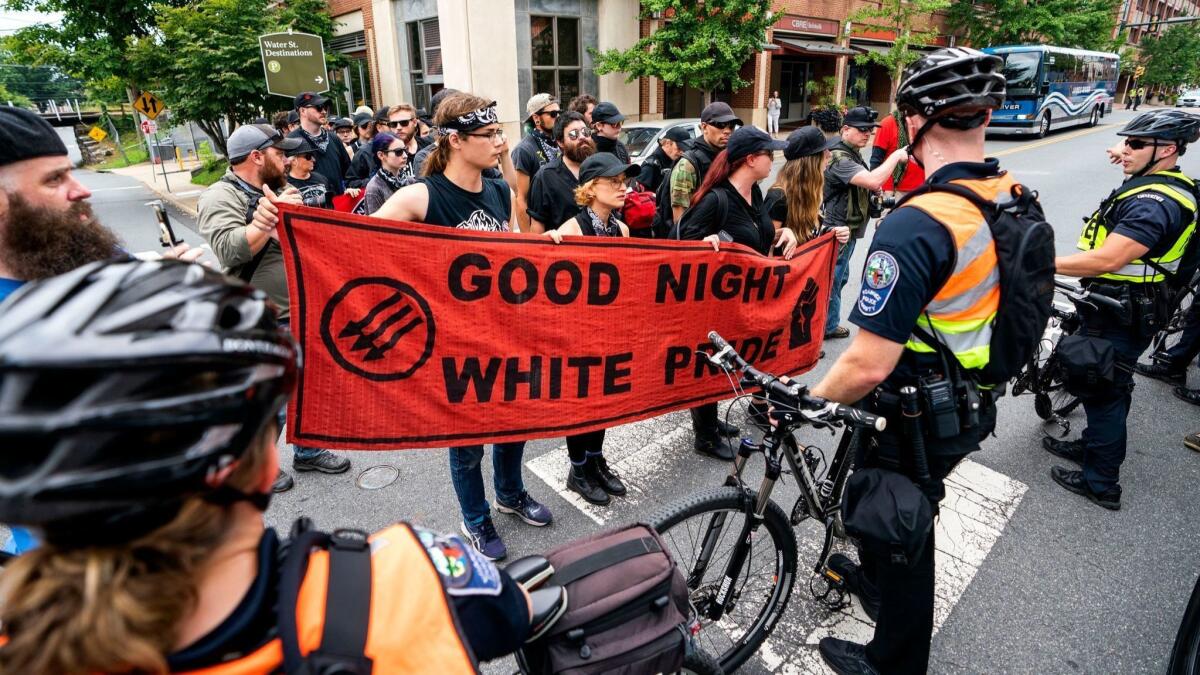
- Share via
Reporting from CHARLOTTESVILLE, Va. — Police blocked off streets and mobilized hundreds of officers for the anniversary of white supremacist violence in Charlottesville, Va. The security measures alarmed activists but reassured others who said they have painful memories of last year’s chaos.
Local and state authorities framed the weekend’s heightened security as a necessary precaution.
Late Saturday morning, when many businesses in a popular downtown shopping district were beginning to open, law enforcement officers outnumbered visitors. Concrete barriers and metal fences had been erected, and police were searching bags at two checkpoints where people could enter or leave.
Nearby, dozens of officers carrying helmets and with gas masks strapped to their belts stood watch in the park where hundreds of white nationalists gathered last summer at a rally planned in part to protest the city’s plans to remove a statue of Confederate Gen. Robert E. Lee. The event descended into violence, with clashes erupting between attendees and counterprotesters. A young woman was killed when a man drove into a crowd of counterprotesters.
Who was responsible for the violence in Charlottesville? Here’s what witnesses say »
Some community activists were concerned that this year’s heavy police presence could be a counterproductive overreaction.
An independent investigation of the rally violence, led by a former federal prosecutor, found the chaos stemmed from a passive response by law enforcement and poor preparation and coordination between state and city police.
Lisa Woolfork, a University of Virginia professor and Black Lives Matter Charlottesville organizer, said police are mounting a “huge, overwhelming show of force to compensate for last year’s inaction.”
“Last year, I was afraid of the Nazis. This year, I’m afraid of the police,” Woolfork said. “This is not making anyone that I know feel safe.”
But some business owners and downtown visitors said Saturday they were comforted by the security measures.
“It’s nice that they’re here to protect us,” said Lara Mitchell, 66, a sales associate at Ten Thousand Villages, a shop that sells artwork, jewelry and other items.
Kyle Rodland, 35, took his young sons to get ice cream downtown late Saturday morning.
Rodland said he felt much safer than last year, when he left town with his family and stayed with his parents after seeing people armed with long rifles walking around outside his home.
Saturday marked the anniversary of a march by torch-toting white supremacists a day ahead of the larger event in downtown. The group paraded through the University of Virginia’s campus, shouting racist and anti-Semitic slogans.
On Saturday morning, the university hosted a “morning of reflection and renewal,” with musical performances, a poetry reading and an address from university President James Ryan.
Ryan recalled how a group of students and community members faced off against the white supremacists near a statue of Thomas Jefferson on campus, calling it a “remarkable moment of courage and bravery.”
Later Saturday evening, students and activists planned to hold a “Rally for Justice” on campus.
Other events were also planned throughout the weekend, including on Sunday, the anniversary of the violence that erupted on the streets of Charlottesville.
After authorities had forced the clashing crowds of white supremacists and counterprotesters to disperse, a car plowed into a crowd, killing 32-year-old counterprotester Heather Heyer.
James Fields Jr., 21, of Maumee, Ohio, is charged in state court with murder in Heyer’s killing and faces separate hate crime charges in federal court.
The death toll from the event last year rose to three when a state police helicopter that had been monitoring the event and assisting with the governor’s motorcade crashed, killing two troopers.
Jason Kessler, the primary organizer of last summer’s rally, sued the city of Charlottesville after it refused to issue him a permit for another event this weekend. However, Kessler dropped his lawsuit last week and vowed to forge ahead with plans for a “white civil rights” rally Sunday in Washington, D.C.
On Wednesday, Gov. Ralph Northam and the city both declared states of emergency, citing the “potential impacts of events” in Charlottesville during the anniversary weekend. The state’s declaration allocates $2 million in state funds and authorizes the Virginia National Guard to assist in security efforts.
The city closed downtown streets and public parks and restricted access to a downtown “security area,” where visitors were prohibited from wearing masks or carrying certain items, including skateboards, catapults, glass bottles, bats and knives.
Virginia State Police Superintendent Gary Settle said more than 700 state police will be activated during the weekend.
More to Read
Sign up for Essential California
The most important California stories and recommendations in your inbox every morning.
You may occasionally receive promotional content from the Los Angeles Times.
